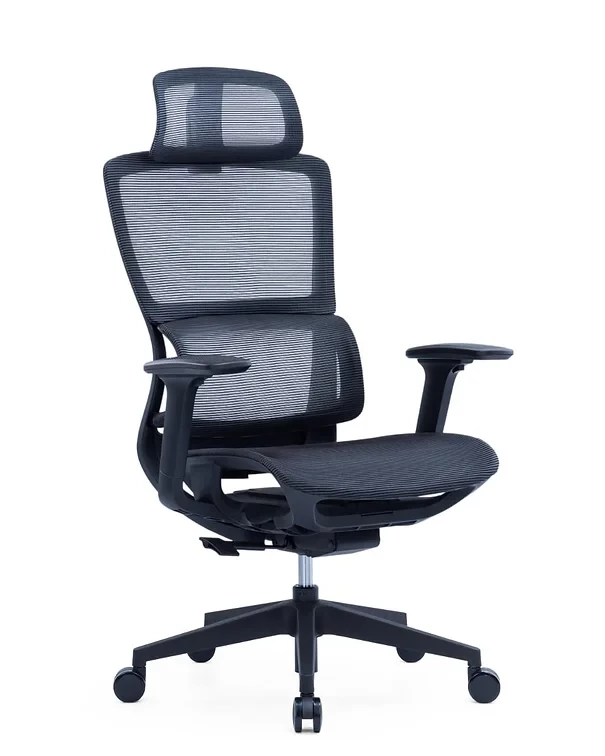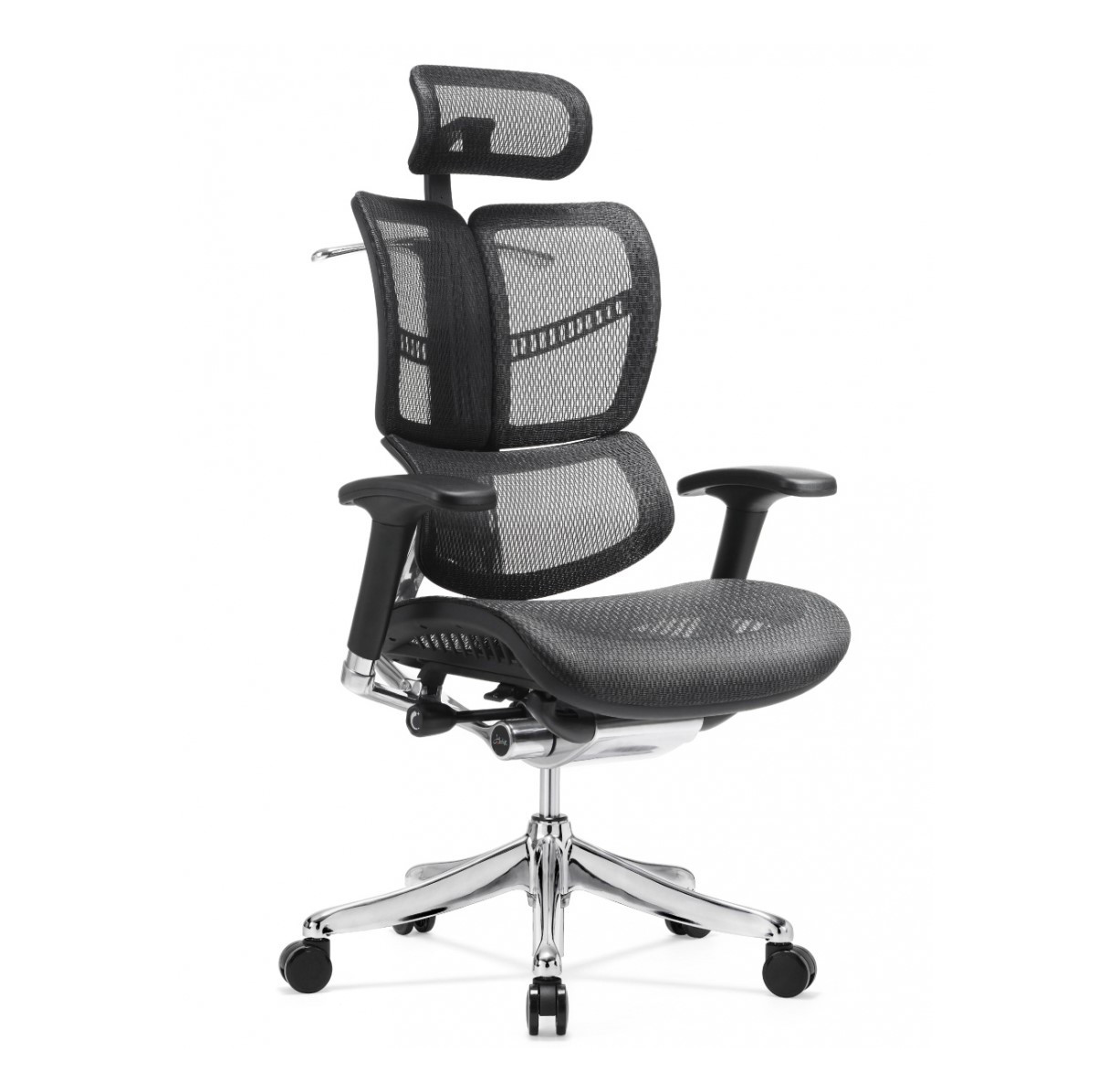
The Impact of High-Density Foam in Ergonomic Office Chairs
Introduction
When it comes to choosing the right office chair, comfort and support are paramount, especially for those who spend long hours sitting. One key feature that greatly contributes to comfort is the material used in the seat and backrest. High-density foam, a popular choice in ergonomic office chairs, offers superior cushioning and support that can significantly impact your overall sitting experience. In this article, we will explore the benefits of high-density foam in ergonomic office chairs and why it’s an essential element for comfort and well-being during long work hours.
1. Superior Comfort and Support
High-density foam is known for its ability to provide superior cushioning while offering consistent support. Unlike traditional foam that may flatten over time, high-density foam retains its shape, offering prolonged comfort throughout the day. It helps distribute body weight evenly, reducing pressure points that can cause discomfort during long sitting sessions.
2. Better Posture and Alignment
An ergonomic chair with high-density foam encourages proper posture by providing firm support to the lumbar region, spine, and hips. The foam’s resilience allows it to contour to your body, ensuring that your spine remains in a neutral position and reducing the risk of strain or injury.
3. Durability and Longevity
High-density foam is more durable than standard foam and is designed to last longer without losing its shape. Chairs with high-density foam maintain their performance over time, even with regular use. This durability makes them a worthwhile investment for long-term comfort and support.
4. Reduces Fatigue
By promoting proper posture and evenly distributing body weight, high-density foam helps reduce the amount of pressure exerted on your muscles and joints. This leads to less fatigue and discomfort, allowing you to stay focused and productive for longer periods.
5. Heat Regulation
High-density foam offers better air circulation compared to other materials, which can help keep you cool during long hours of sitting. While it provides cushioning, it also allows air to flow freely, preventing the build-up of heat and moisture that can occur in other foam types, ensuring a more comfortable sitting experience.
6. Enhanced Pressure Relief
The key advantage of high-density foam is its ability to relieve pressure from sensitive areas of the body. Whether it's the lower back, thighs, or buttocks, high-density foam supports these areas effectively, reducing discomfort and enhancing overall comfort.
7. Customizable Support
High-density foam can be used in various chair components, such as the seat, backrest, and armrests, to provide a fully customizable seating experience. This adaptability ensures that the chair can meet the unique needs of different users, whether they require more lumbar support or additional cushioning for the hips.
8. Improved Ergonomics
High-density foam contributes to the overall ergonomics of an office chair by providing stable support that aligns with the natural curves of the body. This support helps alleviate strain on the neck, shoulders, and lower back, making ergonomic office chairs with high-density foam an essential choice for those looking to improve their posture and comfort.
9. Noise Reduction
Chairs with high-density foam are quieter than those with other foam types or no foam at all. The material’s density helps absorb sound, reducing the noise created by movement, which is particularly beneficial in shared office spaces where maintaining a quiet environment is important.
10. Versatility for Different Body Types
High-density foam adapts well to different body shapes and sizes, providing personalized comfort for a wide range of users. It can support heavier individuals with more substantial weight distribution while still providing adequate support for lighter users, ensuring versatility and inclusivity.
Additional Considerations When Choosing an Ergonomic Chair with High-Density Foam
11. Layering for Maximum Comfort
Some ergonomic chairs combine high-density foam with additional layers of softer foam to enhance comfort further. This layered design allows for the ideal balance between firm support and soft cushioning, offering a more comfortable seating experience.
12. Foam Density and Firmness
While high-density foam offers superior support, the foam’s firmness may vary. It’s important to test the chair and determine whether the foam’s firmness aligns with your personal comfort preferences before making a purchase.
13. Breathability of Upholstery
The fabric or material covering high-density foam plays a crucial role in comfort. Breathable upholstery, such as mesh, promotes airflow and helps maintain a comfortable temperature during extended sitting periods.
14. Seat Depth and Width
When selecting a chair with high-density foam, consider the seat’s depth and width. The foam should provide adequate cushioning without being too soft or too firm, and the seat should be spacious enough to support the user comfortably without causing strain on the legs.
15. Backrest and Lumbar Support
A high-density foam chair that offers adjustable backrests and lumbar support provides additional comfort and helps align the spine correctly. Ensure that the backrest supports your natural spine curve and provides adequate lower back support.
16. Adjustability Features
Look for ergonomic chairs with adjustable seat height, tilt, and armrests to allow customization of your seating position. High-density foam paired with these adjustable features enhances the ergonomic benefits of the chair.
17. Price vs. Quality
While high-density foam chairs may come at a higher price point, they are an investment in long-term comfort and health. Consider the durability and extended benefits of high-density foam when comparing prices with lower-cost alternatives.
18. Maintenance and Care
High-density foam requires minimal maintenance but should still be cared for properly to extend its lifespan. Regularly cleaning the upholstery and checking for any signs of wear can help preserve the foam’s performance and ensure your chair remains in top condition.
19. Material Compatibility
Ensure that the materials used in conjunction with high-density foam are also of high quality. For instance, the frame, wheels, and mechanisms should be durable to complement the foam’s long-lasting support and comfort.
20. Warranty and Return Policy
Many ergonomic chairs come with warranties that cover defects in materials and workmanship. Look for chairs with good warranty policies that offer peace of mind in case of any issues with the foam or other components.
Recommended Products

-
Chablo Executive High-Back Ergonomic Office Chair – Black
This high-back ergonomic chair with high-density foam offers exceptional lumbar support and comfort, ideal for long hours of sitting.
-
Zonko Butterfly Super Ergonomic Executive Mesh Chair
A modern mesh office chair with high-density foam, designed to provide comfort and support for individuals who need a reliable seating solution.
Final Thoughts
High-density foam plays a pivotal role in enhancing the comfort and functionality of ergonomic office chairs. By providing firm yet supportive cushioning, it promotes better posture, reduces fatigue, and ensures long-lasting comfort. Whether you’re looking to improve your work environment or invest in your health and well-being, a chair with high-density foam can make a significant difference in your daily office experience.
FAQ
What makes high-density foam better than other foam types?
High-density foam provides more durability and support than regular foam, ensuring longer-lasting comfort and maintaining its shape over time.How does high-density foam benefit posture?
It offers firm support to the spine and lumbar area, encouraging proper alignment and reducing strain on the back and neck.Can high-density foam reduce discomfort from long sitting hours?
Yes, high-density foam helps distribute weight evenly, reducing pressure on sensitive areas and alleviating discomfort during prolonged sitting.Are high-density foam chairs more expensive than standard foam chairs?
Yes, high-density foam chairs typically come at a higher price point, but they offer better long-term comfort and durability, making them a worthwhile investment.


